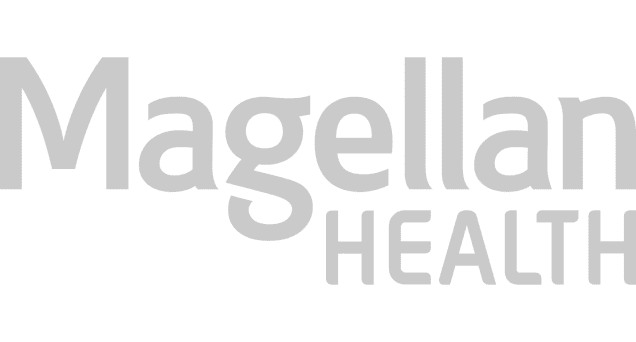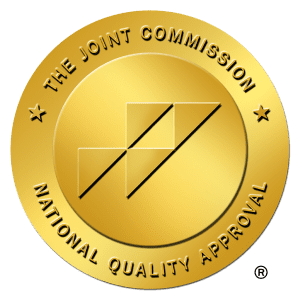Music therapy is a holistic approach to healing that uses the power of music to address physical, emotional, cognitive, and social needs. It is a well-established form of therapy that is conducted by trained and certified music therapists. These professionals use a wide range of musical activities and techniques to help individuals achieve specific therapeutic goals.
Exploring Music Therapy in Addiction Treatment

Exploring Music Therapy in Addiction Treatment

What is Music Therapy?

The Role of Music in Addiction Recovery
When it comes to addiction treatment, music therapy can play a significant role in the recovery process. Here’s how:
Emotional Expression
- Music therapy provides a safe and non-verbal way for individuals to express their emotions. Many individuals struggling with addiction have difficulty articulating their feelings, and music can serve as a powerful outlet for these emotions.
Stress Reduction
- Listening to and creating music has been shown to reduce stress and anxiety levels. In addiction recovery, managing stress is crucial, as it can often trigger relapse.
Coping Skills
- Music therapy helps individuals develop healthy coping skills. It teaches them how to channel their emotions and urges into creative and constructive outlets, rather than turning to substance abuse.
Building Connections
- Group music therapy sessions foster a sense of community and connection among individuals in recovery. These sessions promote social interaction and support, which are essential for long-term sobriety.
Enhancing Self-Awareness
- Music therapy encourages self-reflection and self-awareness. Through musical activities, individuals can gain insights into their thoughts and feelings, paving the way for personal growth and healing.

The Role of Music in Addiction Recovery
When it comes to addiction treatment, music therapy can play a significant role in the recovery process. Here’s how:
Emotional Expression
- Music therapy provides a safe and non-verbal way for individuals to express their emotions. Many individuals struggling with addiction have difficulty articulating their feelings, and music can serve as a powerful outlet for these emotions.
Stress Reduction
- Listening to and creating music has been shown to reduce stress and anxiety levels. In addiction recovery, managing stress is crucial, as it can often trigger relapse.
Coping Skills
- Music therapy helps individuals develop healthy coping skills. It teaches them how to channel their emotions and urges into creative and constructive outlets, rather than turning to substance abuse.
Building Connections
- Group music therapy sessions foster a sense of community and connection among individuals in recovery. These sessions promote social interaction and support, which are essential for long-term sobriety.
Enhancing Self-Awareness
- Music therapy encourages self-reflection and self-awareness. Through musical activities, individuals can gain insights into their thoughts and feelings, paving the way for personal growth and healing.
Your Journey to Wholeness Begins with Only a Willingness
We’re here to encourage and support you.
Start On Your Path today!
Need Clarity? Text or Call our Admissions Team Anytime.
Your Journey to Wholeness Begins
with Only a Willingness
We’re here to encourage and support you: Start On Your Path today! Need Clarity?
Text or Call our Admissions Team Anytime.
Incorporating Music Therapy into Addiction Treatment
Assessment
Individual and Group Sessions
Diverse Musical Activities
Consistency

Start Your Journey
In the journey to recovery from addiction, exploring alternative therapies like music therapy can be a valuable addition to traditional treatment methods. Its ability to address the emotional, social, and cognitive aspects of addiction makes it a powerful tool for individuals seeking a well-rounded approach to healing.
Remember that music therapy is most effective when conducted by trained and certified professionals. If you or a loved one is interested in incorporating music therapy into addiction treatment, consult with a qualified music therapist to discuss your specific needs and goals. With the harmonious blend of music and therapy, you can embark on a transformative path toward lasting recovery. For more tips and information on addiction recovery contact Grata House today.

Start Your Journey
In the journey to recovery from addiction, exploring alternative therapies like music therapy can be a valuable addition to traditional treatment methods. Its ability to address the emotional, social, and cognitive aspects of addiction makes it a powerful tool for individuals seeking a well-rounded approach to healing.
Remember that music therapy is most effective when conducted by trained and certified professionals. If you or a loved one is interested in incorporating music therapy into addiction treatment, consult with a qualified music therapist to discuss your specific needs and goals. With the harmonious blend of music and therapy, you can embark on a transformative path toward lasting recovery. For more tips and information on addiction recovery contact Grata House today.











Your Journey to Wholeness Begins
with Only a Willingness
We’re here to encourage and support you.
Start On Your Path Today!
Need Clarity? Text or Call our Admissions Team Anytime.
Your Journey to Wholeness
Begins with Only a Willingness
We’re here to encourage and support you. Need Clarity? Text or Call our Admissions Team Anytime.
Start On Your Path today!
FAQS
- What is music therapy, and how does it work in addiction treatment?
- Is music therapy a standalone treatment for addiction?
- Can anyone benefit from music therapy in addiction treatment?
- What happens during a music therapy session for addiction treatment?
- What happens during a music therapy session for addiction treatment?
- Is musical talent or experience necessary to benefit from music therapy?
- Can music therapy prevent relapse in addiction recovery?
Music therapy is a therapeutic approach that utilizes music and musical activities to address physical, emotional, cognitive, and social needs. In addiction treatment, certified music therapists employ various techniques to help individuals express emotions, reduce stress, develop coping skills, build connections, and enhance self-awareness.
No, music therapy is typically used as a complementary therapy alongside traditional addiction treatment methods. It can enhance the effectiveness of treatment programs by addressing the emotional and social aspects of addiction.
Yes, individuals at various stages of addiction and recovery can benefit from music therapy. It is suitable for people of all ages and backgrounds and can be tailored to meet individual needs and goals.
During a music therapy session, individuals may engage in activities such as listening to music, playing instruments, songwriting, and improvisation. The specific activities depend on the individual’s preferences and therapeutic goals.
The duration of a music therapy session can vary but often ranges from 30 minutes to an hour. The number of sessions required depends on the individual’s needs and goals, and it is determined in consultation with a certified music therapist.
No musical talent or experience is required to benefit from music therapy. It is about the therapeutic process, not musical performance. Individuals of all skill levels can participate and benefit from the therapy.
While music therapy alone cannot guarantee the prevention of relapse, it can provide individuals with valuable coping skills, stress management techniques, and emotional support, which can reduce the risk of relapse when integrated into a comprehensive addiction treatment plan
FAQS
- What is music therapy, and how does it work in addiction treatment?
- Is music therapy a standalone treatment for addiction?
- Can anyone benefit from music therapy in addiction treatment?
- What happens during a music therapy session for addiction treatment?
- Can music therapy prevent relapse in addiction recovery?
- Is musical talent or experience necessary to benefit from music therapy?
- How long does a typical music therapy session last, and how many sessions are needed?
Music therapy is a therapeutic approach that utilizes music and musical activities to address physical, emotional, cognitive, and social needs. In addiction treatment, certified music therapists employ various techniques to help individuals express emotions, reduce stress, develop coping skills, build connections, and enhance self-awareness.
No, music therapy is typically used as a complementary therapy alongside traditional addiction treatment methods. It can enhance the effectiveness of treatment programs by addressing the emotional and social aspects of addiction.
Yes, individuals at various stages of addiction and recovery can benefit from music therapy. It is suitable for people of all ages and backgrounds and can be tailored to meet individual needs and goals.
During a music therapy session, individuals may engage in activities such as listening to music, playing instruments, songwriting, and improvisation. The specific activities depend on the individual’s preferences and therapeutic goals.
While music therapy alone cannot guarantee the prevention of relapse, it can provide individuals with valuable coping skills, stress management techniques, and emotional support, which can reduce the risk of relapse when integrated into a comprehensive addiction treatment plan
No musical talent or experience is required to benefit from music therapy. It is about the therapeutic process, not musical performance. Individuals of all skill levels can participate and benefit from the therapy.
The duration of a music therapy session can vary but often ranges from 30 minutes to an hour. The number of sessions required depends on the individual’s needs and goals, and it is determined in consultation with a certified music therapist.
